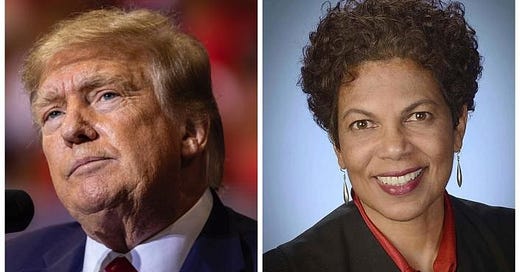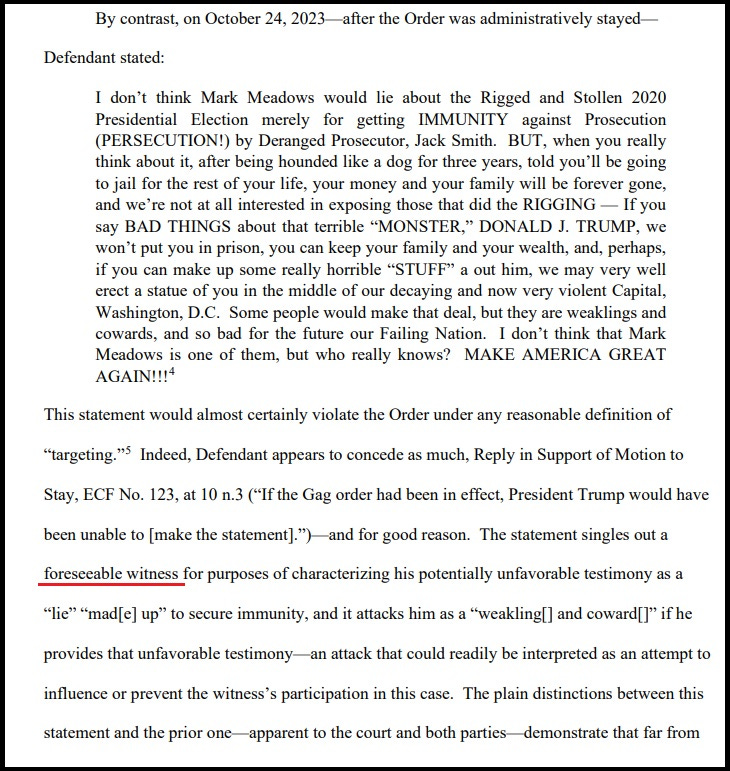DC Judge Chutkan Reinstitutes Gag Order Citing Lawfare Complaint of Trump Statements Against Mark Meadows
By Sundance
For the sake of this argument, if you wanted to align with Judge Chutkan on the need for a gag order, you would first need to clarify if Mark Meadows was a witness for the Jack Smith prosecution. Absent an actual witness list, the remarks by President Trump have to be stretched to encompass potential witnesses or foreseeable witnesses. That’s what Judge Chutkan decided. Anyone who might be a witness is protected by the gag order forbidding President Trump from talking about them.
Jack Smith baited President Trump by leaking a story to ABC News saying Mark Meadows warned President Trump that Biden’s 2020 election win was legitimate. It never happened, but the leak and story were bait to get President Trump to respond – thereby creating the dynamic that would lead to the gag order. The Lawfare worked.
I do not fault President Trump for responding to the ABC News article, he should have every right to speak about false assertions against him. In reality, Jack Smith knew Judge Chutkan wanted to reaffirm the gag order, so he just provided her the legal tool to do it. When dealing with corruption, that’s how Lawfare operates.
WASHINGTON DC – Chutkan reiterated that her decision to issue the original gag order earlier this month was rooted in evidence that Trump’s public attacks on witnesses, prosecutors and court personnel have routinely resulted in threats and harassment jeopardizing their safety and her duty to protect the “orderly administration of justice.” In such cases, she said, the Supreme Court and other legal precedents and rules have supported gag orders as a tool to protect the public’s interest in a fair trial.
[…] Chutkan noted that despite the clear problems with the Meadows statement, she would not act on it because the order had not been in effect. She noted that for any potential violations in the future, she would not reach any conclusions before giving both Trump and prosecutors a chance to “provide their positions on the statement’s meaning and permissibility.” (read more)





